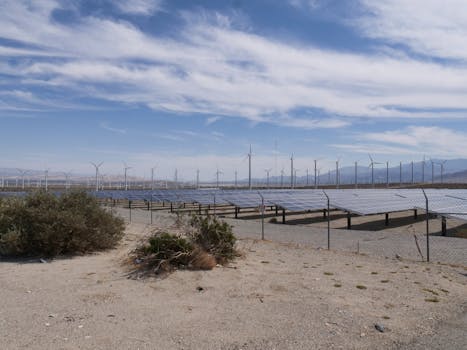
Introduction to Renewable Energy Technology

Breakthroughs in renewable energy technology are essential for a sustainable future. As the global community faces the challenges of climate change and resource depletion, innovations in energy technology offer pathways to a cleaner, more sustainable world. This article will explore significant advancements in renewable energy technologies and their implications for sustainability.
Solar Energy Innovations

Solar energy has witnessed remarkable technological advances in recent years. Photovoltaic (PV) technology has improved efficiency rates significantly. New materials such as perovskite solar cells are changing the landscape, enabling higher energy conversion rates at lower costs. Furthermore, the integration of solar panels with building materials, known as Building-Integrated Photovoltaics (BIPV), is revolutionizing urban architecture by creating energy-efficient buildings.
Wind Energy Developments

Wind energy technology is also evolving. The development of larger, more efficient turbines has increased energy production capabilities. Offshore wind farms are becoming more common, harnessing stronger and more consistent winds found at sea. Innovations in turbine design, such as floating wind turbines, allow for installation in deeper waters, expanding the potential for wind energy generation.
Energy Storage Solutions

Energy storage is crucial for the effectiveness of renewable energy sources. Breakthroughs in battery technology, particularly lithium-ion and solid-state batteries, are providing solutions to energy intermittency. These advancements allow for better storage of excess energy generated from solar and wind sources, ensuring a stable energy supply even during periods of low generation.
Hydrogen as a Clean Fuel

Hydrogen is emerging as a key player in the renewable energy sector. Green hydrogen, produced through electrolysis using renewable energy, offers a clean alternative to fossil fuels. It can be used in various applications, including transportation and industrial processes. Recent advancements in hydrogen production and fuel cell technologies have made it a more viable option for achieving sustainability goals.
Conclusion

In conclusion, breakthroughs in renewable energy technology are paving the way for a more sustainable future. Innovations in solar, wind, energy storage, and hydrogen technologies are essential for reducing our reliance on fossil fuels and minimizing environmental impact. As these technologies continue to evolve, they will play a critical role in addressing the challenges of climate change and creating a sustainable world.



